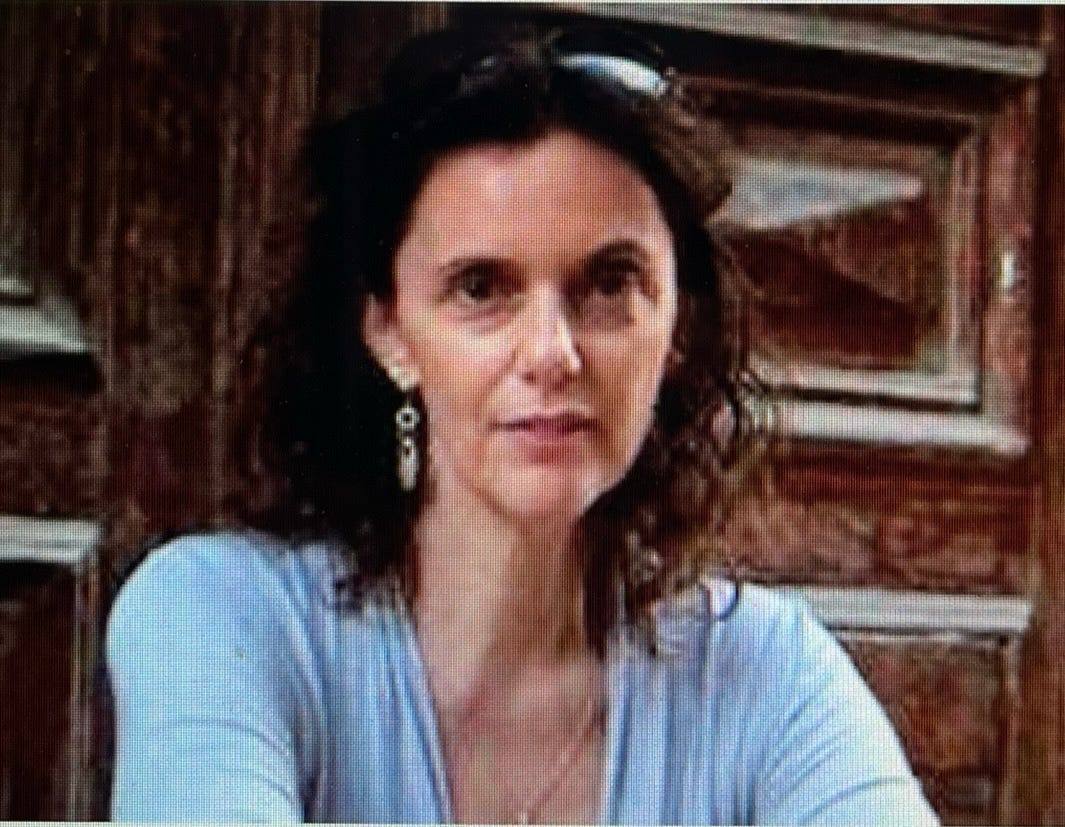The ‘Guernica’ Uprising: No Room For Empathy
A magazine dedicated to the exploration of ideas shuts down a writer committed to Mideast coexistence.
An attempt to bridge the gap: Joanna Chen translates Hebrew and Arab poetry, trying to ‘build literary bridges.’
The subtitle for Joanna Chen’s poignant essay about her heartfelt feelings for both sides in the Israel-Hamas war, posted in Guernica, a prestigious online literary magazine, was: “In Israel, a translator tries to tread the line of empathy.”
Clearly, and tragically, Chen failed.
Her efforts at political and emotional balance were dismissed, even demonized by staff members of the all-volunteer quarterly who charged that the essay tries to soften Israel’s alleged traits of “colonialism” and “genocide.” At least 10 members resigned after Chen’s 3,400-word piece, “From the Edges of a Broken World,” was posted March 4. It was taken down a few days later, and in its place, a statement appeared on Guernica’s webpage that reads: “Guernica regrets having published this piece, and has retracted it.” No explanation was offered.
(The full essay can be found online through the Internet Archive HERE.)
The chilling episode is made all the more disturbing because Chen, an Israeli writer, who specializes in translating Hebrew and Arabic poetry, is firmly in the Israeli peace camp. She did not serve in the Israeli army. Her essay mentions that, during fighting between Hamas and Israel in 2014, she and her husband gave blood in an East Jerusalem hospital “for the people of Gaza.” She also describes her volunteer work with Road to Recovery, a non-profit organization that arranges for Israelis to drive seriously ill Palestinian children to Israeli hospitals for “lifesaving medical procedures.”
On October 7, Chen notes, Vivian Silver, a leading Road to Recovery member and longtime Canadian peace activist, was among the many hundreds of Israelis brutally murdered in the Hamas attack. (Silver’s home in Be’eri was burned down and her remains were found weeks later. She was 78.)
“I admit, I was afraid for my life,” Chen writes. But two weeks later, she “took the plunge and again began driving [Palestinian] children to hospitals” in Israel.
The fact that Chen’s essay was removed and repulsed by a high-brow magazine whose mission statement describes Guernica as “a home for incisive ideas and necessary questions” raises the very real question of whether there is any hope for dialogue or understanding when it comes to Israel.
The senior editor who resigned explained that it was in part because the essay did not call out Israel as “a violent, imperialist, colonial power” that dehumanizes Palestinians. Is that the starting point for a serious discussion?
In an email this week, Chen told the New York Times that her essay was intended to be “about the willingness to listen, and the idea that remaining deaf to voices other than your own won’t bring the solution.”
The sad truth, based on cases like the Guernica staff reaction and a growing number of voices among professors and students at American universities, is that the intended “solution” is not a peaceful, diplomatic one between Israelis and Palestinians. Rather, it is to expunge the Jewish state from the Mideast map.
Following is an excerpt from Chen’s essay, describing her feelings after October 7:
My heart was in turmoil. It is not easy to tread the line of empathy, to feel passion for both sides. But as the days went by, the shock turned into a dull pain in my heart and a heaviness in my legs. At night, I lay in bed on my back in the dark, listening to rain against the window. I wondered if the Israeli hostages underground, the children and women, had any way of knowing the weather had turned cold, and I thought of the people of Gaza, the children and women, huddled inside tents supplied by the UN or looking for shelter…
The horrors that had been perpetrated rose to the surface of my consciousness at these times. I listened to interviews with survivors; I watched videos of atrocities committed by Hamas in southern Israel and reports about the rising number of innocent civilians killed in a devastated Gaza.
There is a limit to which the human soul can stomach atrocities and keep going. On the other hand, turning away from distressing footage taken by Hamas terrorists, by surveillance cameras, and by people running for their lives or sheltering from missiles meant turning away from their pain. I couldn’t do it.
Instead, I limited my intake of the news and joined a number of solidarity groups, Zoom meetings in which people shared their dismay and shock. But they were mostly Israelis, and much of the talk centered on their own side. One woman expressed anger that Palestinians she knew through her volunteer work had not reached out on October 7 to ask how she was, whether her family was safe.
I shrugged inwardly at this sentiment. The Palestinians in the West Bank were struggling with their own problems: closure, the inability to work, the threat of wide scale arrests being made by the Israeli army, and harassment by settlers.
No one was safe.





Maybe she will learn that no amount of “peace now”-ing will undo the fact that she’s a Jew and that there is no rationalizing the obscene and irrational hatred that haters have for every Jew and the Jewish State
Jay, I just checked the link. It is working and will go directly to the article. I suggest trying a different browser.